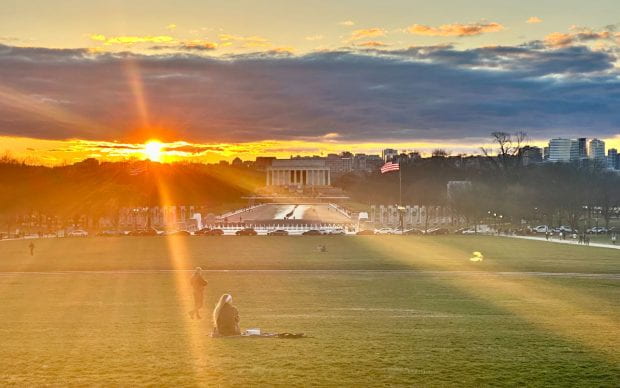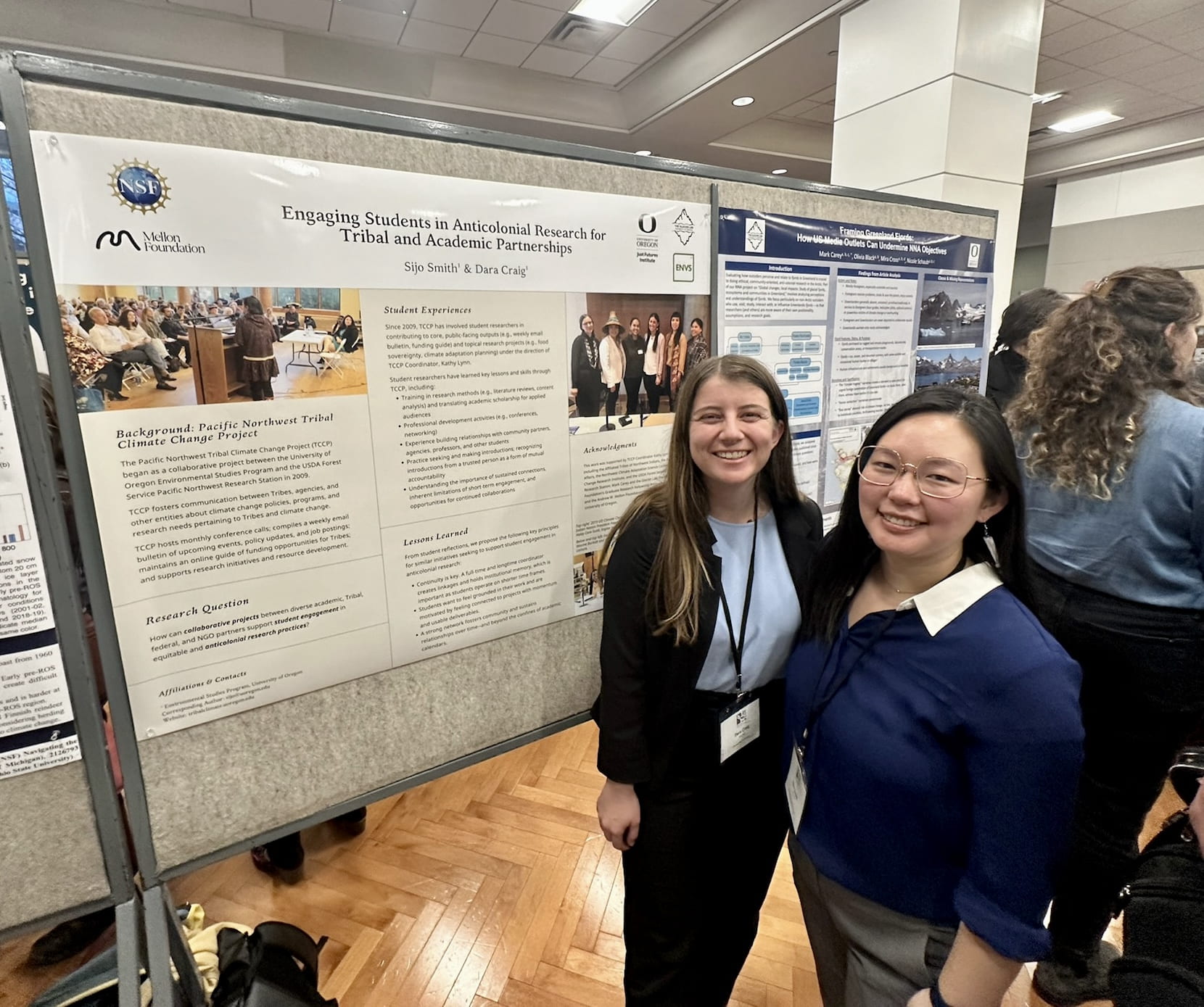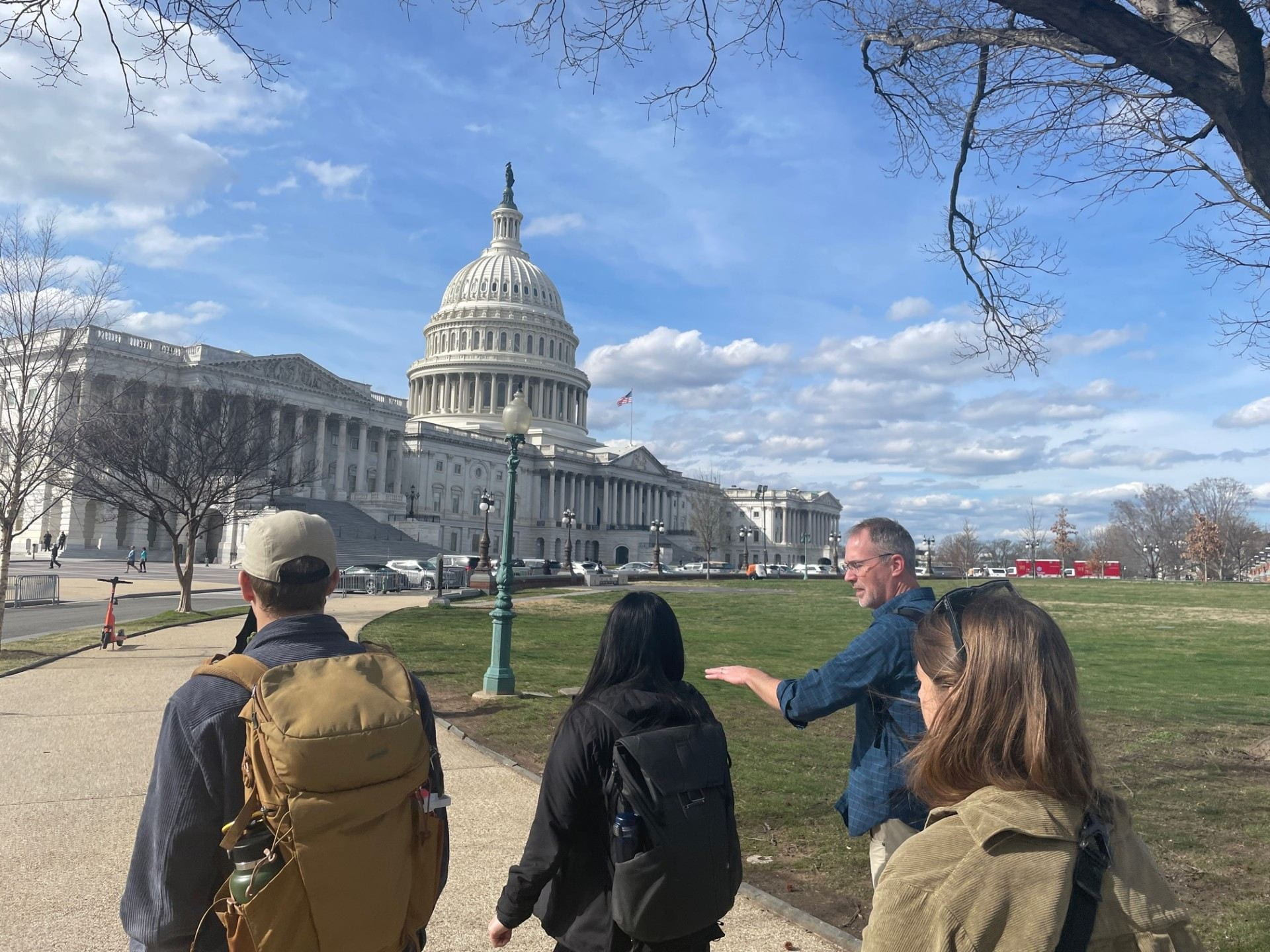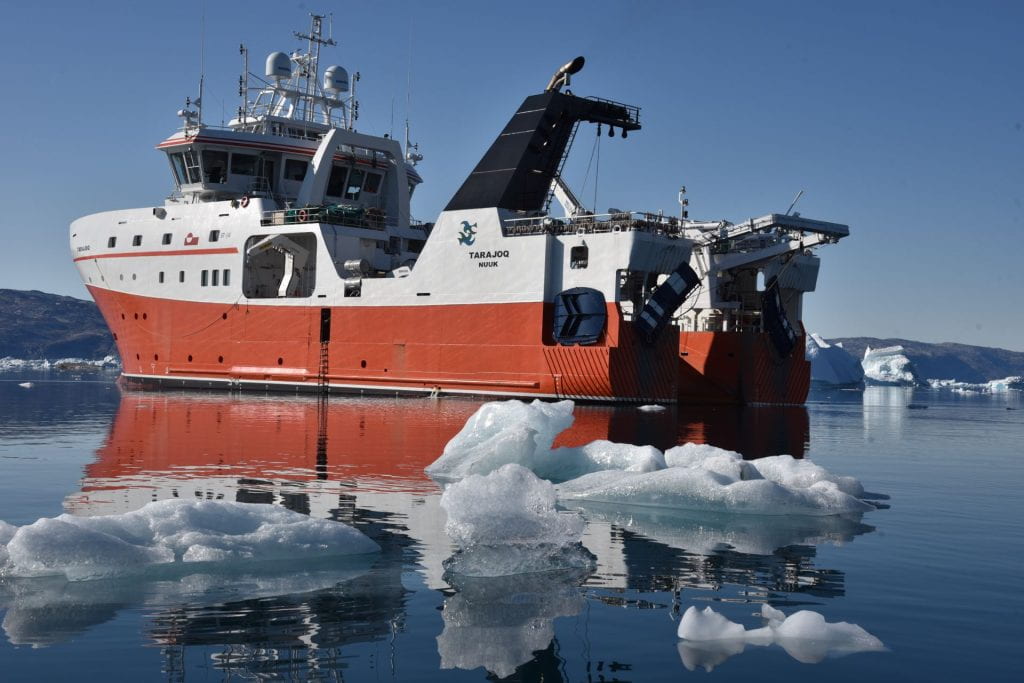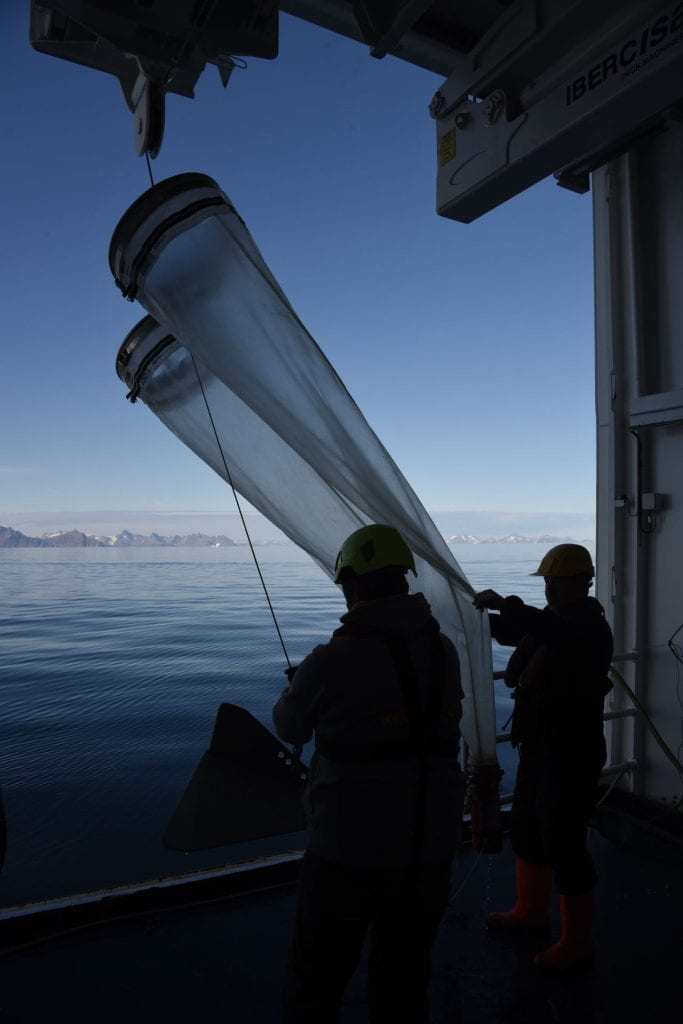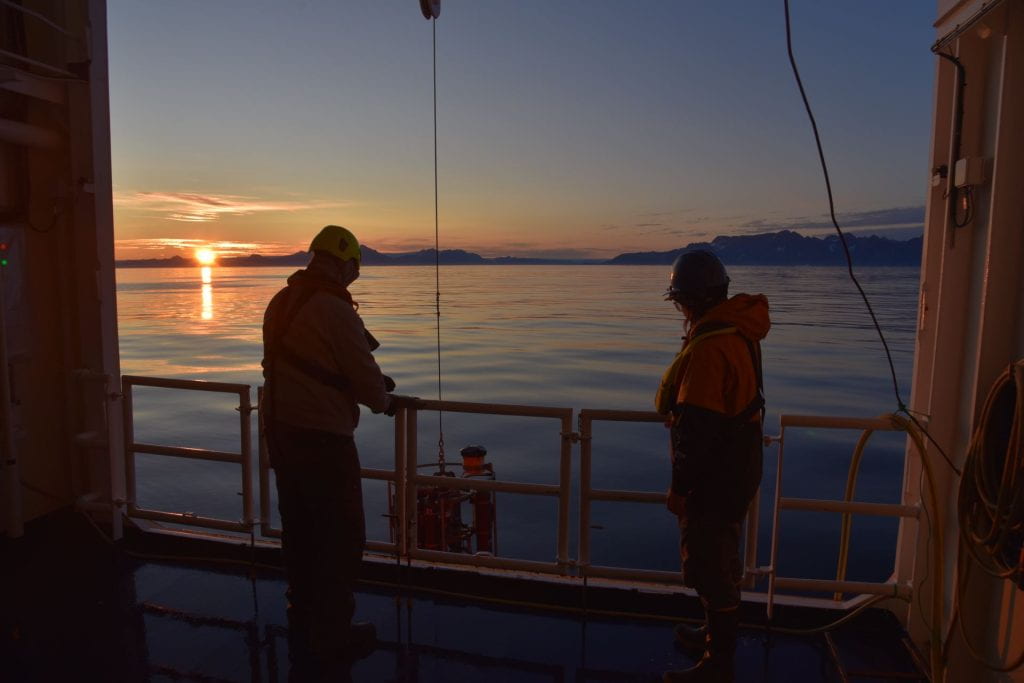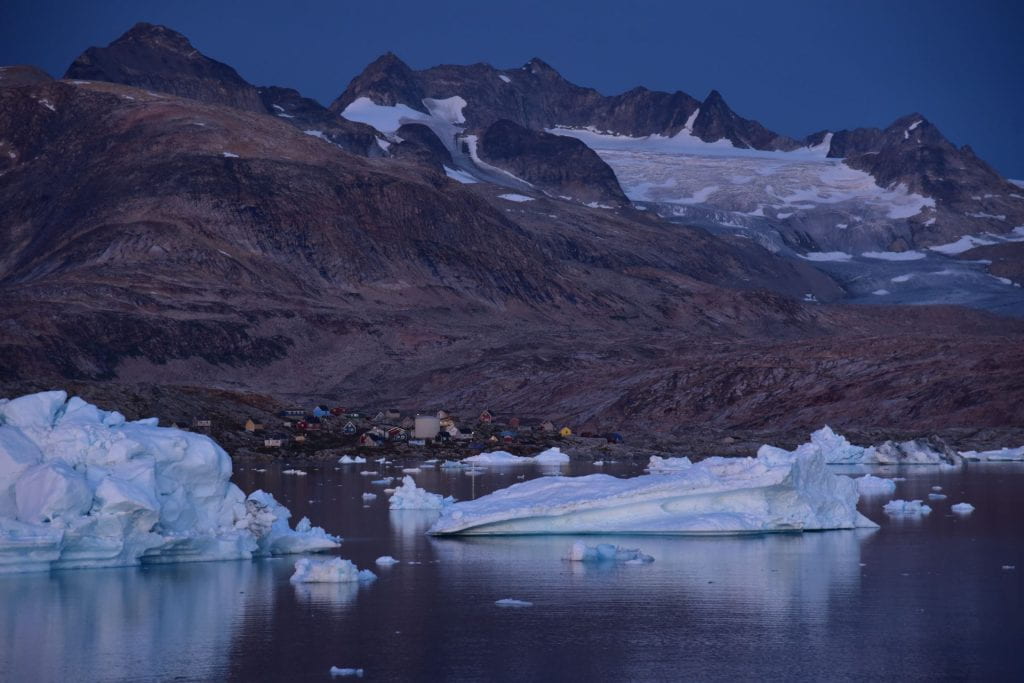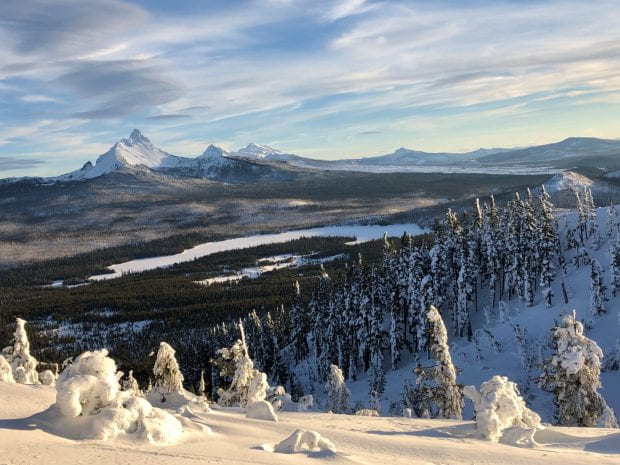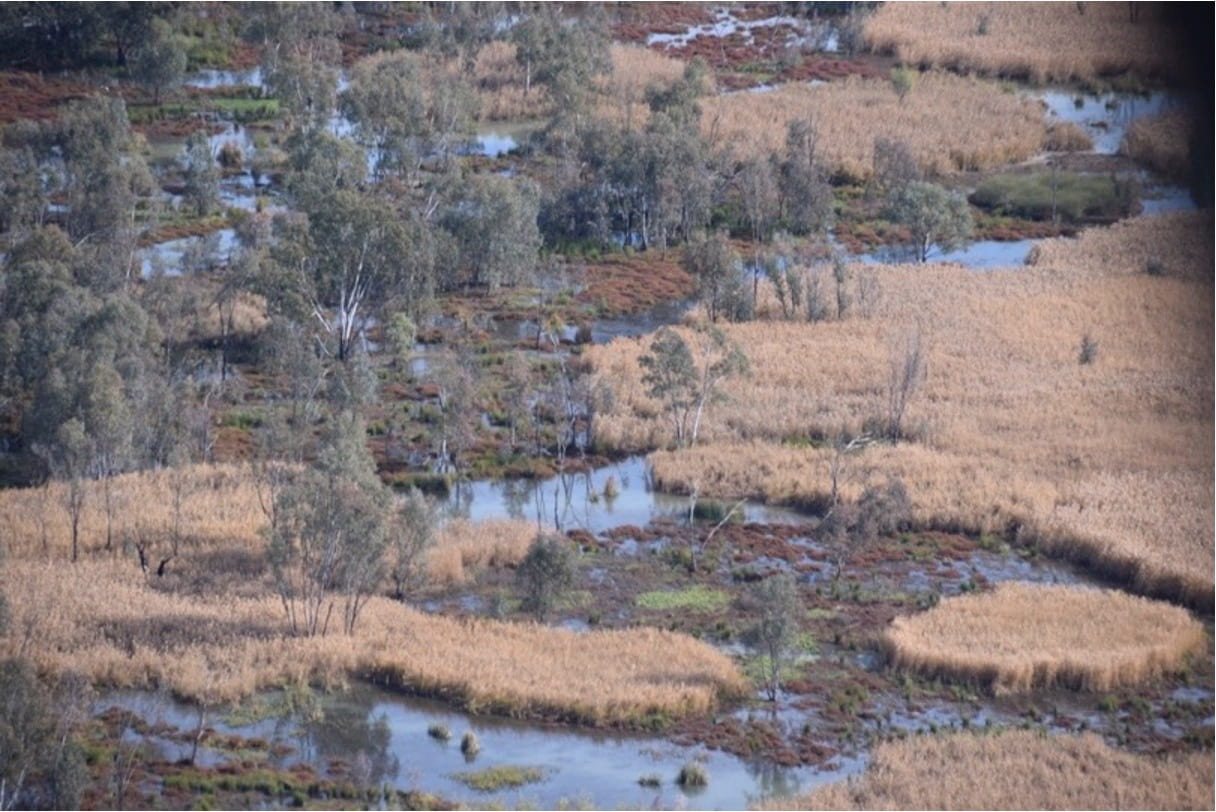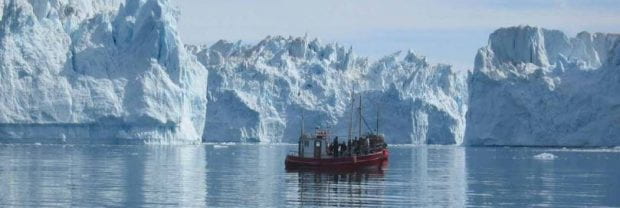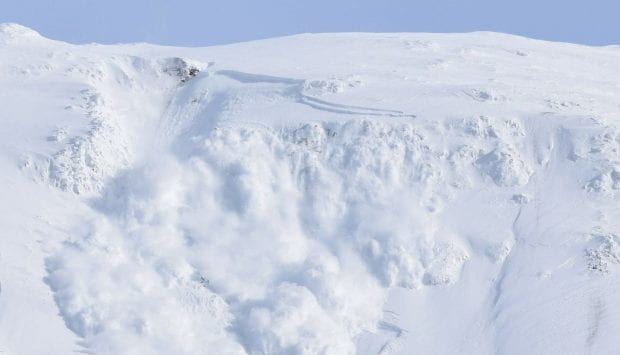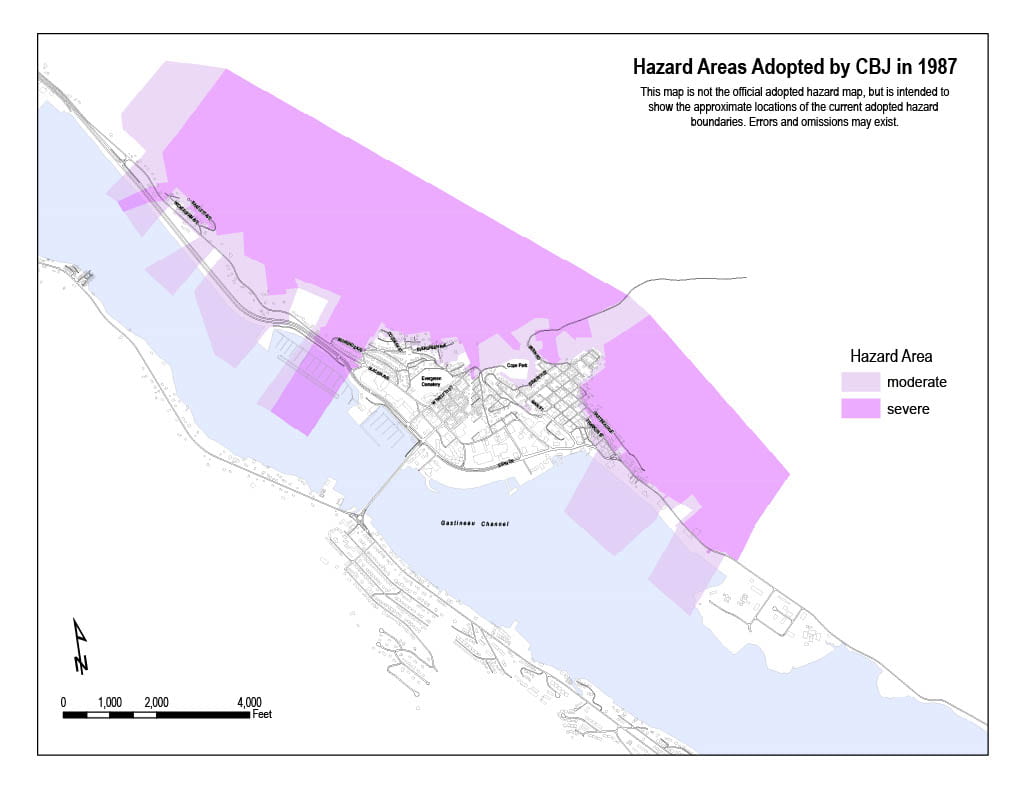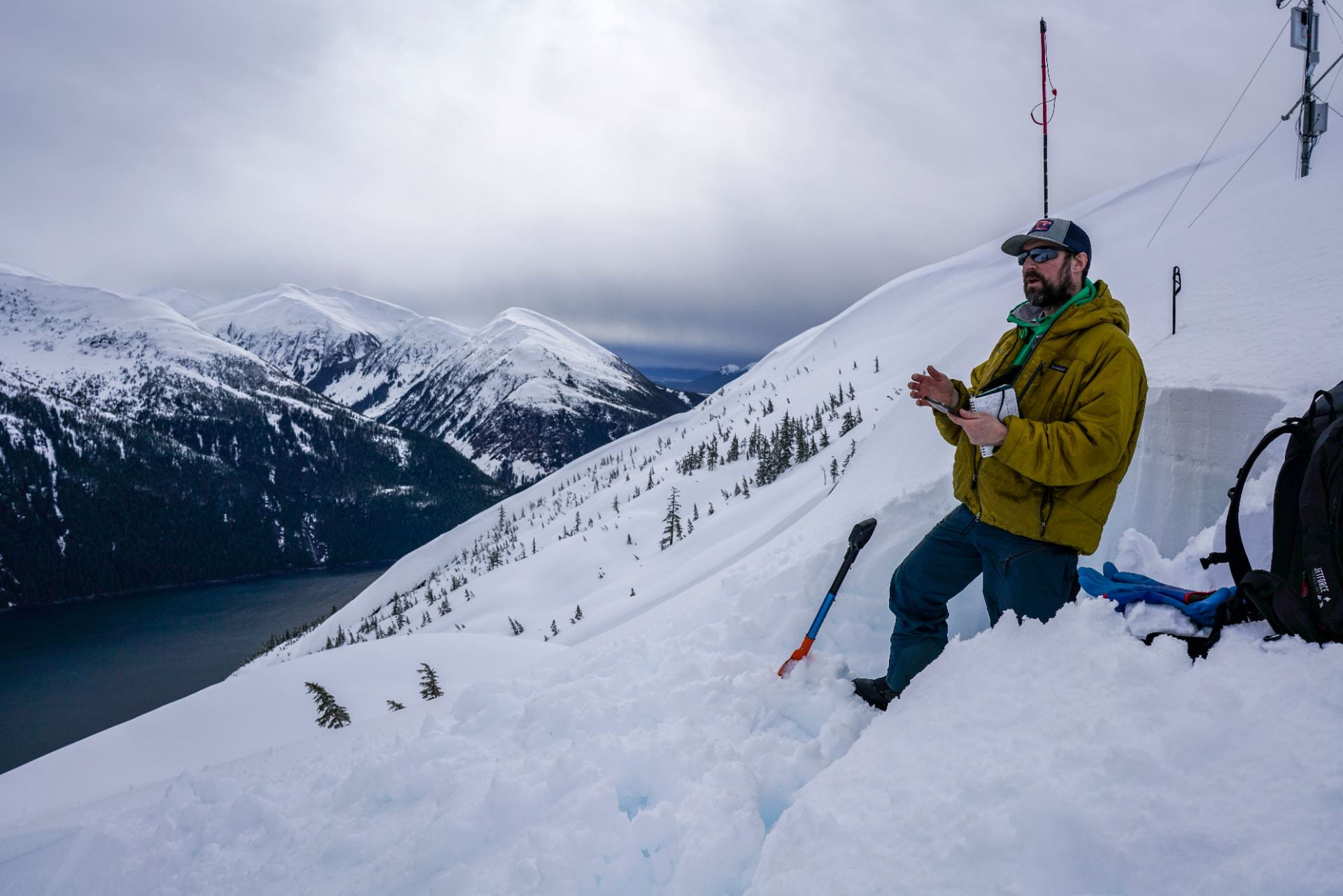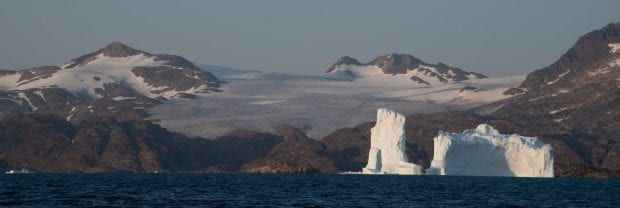Call for Applications (due May 20, 2022)
$4,500 Course Development Grant for a New Course Related to Ice and Environmental Justice in the Pacific Northwest
If you’re thinking about developing a new course related to environmental justice—and particularly if it connects to the Pacific Northwest and to snow, ice, glaciers, or glacier-fed waterways—then consider applying for a new course development grant ($4,500 stipend plus OPE). This grant is available thanks to generous support from the Andrew Mellon Foundation.
The goal of this larger Mellon “Pacific Northwest Just Futures” grant is to advance research and education on social and environmental justice issues in the Pacific Northwest (Oregon, Washington, Alaska, British Columbia). There are many ways to bring these issues into a new course, and instructors from all disciplines, in all units, and all UO colleges are eligible to apply. Environmental justice courses related to ice could go in many different directions. Arctic residents including in Alaska rely on thinning sea ice for their homelands, hunting, fishing, transportation, cultural identity, and everything. Permafrost thawing is forcing some coastal communities to relocate and affecting vital infrastructure. Shrinking glaciers in Oregon and Washington play a role in farming and irrigation, environmental hazards like outburst floods and avalanches, salmon and fisheries, Tribal rights and treaties, hydropower, alpine recreation, coastal and marine ecosystems, public lands management, livelihoods and economies, identities, and food security.
Proposed new courses could focus on any of these topics and ice types (sea ice, glaciers, ice sheets, icebergs, permafrost, snow), and many others, as long as the course is connected to ice, environmental justice, and the Pacific Northwest. A new course in environmental ethics could include substantive new content on the Pacific Northwest and/or the cryosphere, while a new Earth Sciences course on hazards could add an environmental justice component, or a Law School course on water in the Northwest could bring in glaciers that feed those waterways, or an Indigenous environmental studies course could increase new content on environmental hazards and justice in Oregon.
One $4,500 course development grant will be awarded this spring/summer 2022, with the expectation that the course will be taught before Fall 2023 (so anytime during the 2022-2023 academic year, or in Fall 2023).
Eligibility and Priorities
This course development grant is designed to help an instructor create a new course or substantially overhaul an existing course with new content and structure. All UO instructors and faculty are eligible—from any unit, discipline, department, or college. Anyone who teaches their own courses can apply. Priority will be given to courses that will likely be taught at the UO more than once, rather than a one-time course offering. A course that has strong environmental justice, ice, and Pacific Northwest content will also be prioritized over a course with only minimal attention to these topics. Priority will also be given to a course that offers innovative pedagogy and interdisciplinary approaches. The proposed course must be taught by Fall 2023.
Award Details
The course development grant provides a $4,500 stipend to the instructor and covers the associated OPE. The award will be paid in two equal installments: first, at the outset of course development (in summer 2022); and, second, at the beginning of the term when the course is first offered.
Application Deadline: May 20, 2022
Application Instructions
To apply, email the following materials to Mark Carey (carey@uoregon.edu):
- Cover Letter that provides (1) your contact information, (2) course specifics including proposed course number, title, and expected enrollment; (3) timing of when you will first teach the course (term/year) and frequency of course offering thereafter; (4) course approval status, or steps required for approval, to assure the course can be taught as proposed
- Course Overview explaining: (1) the course rationale, objectives, and topics; (2) any pedagogical innovations; (3) course plans including potential readings, assignments, topics to cover, etc.; and (4) ways the course addresses ice, environmental justice, and the Pacific Northwest
- Department/Unit Head Approval: finalists will be asked to have their unit head confirm that the course offering and plan for continued teaching align with unit-level approvals and planning
Questions: For questions about the award and process, contact Mark Carey (carey@uoregon.edu), who runs the Glacier Lab for the Study of Ice and Society and is based in the Environmental Studies Program and Geography Department. Funding for this course development grant comes from his “Ice, Society, and Climate Justice” dimension of the Mellon “Just Futures” grant.



